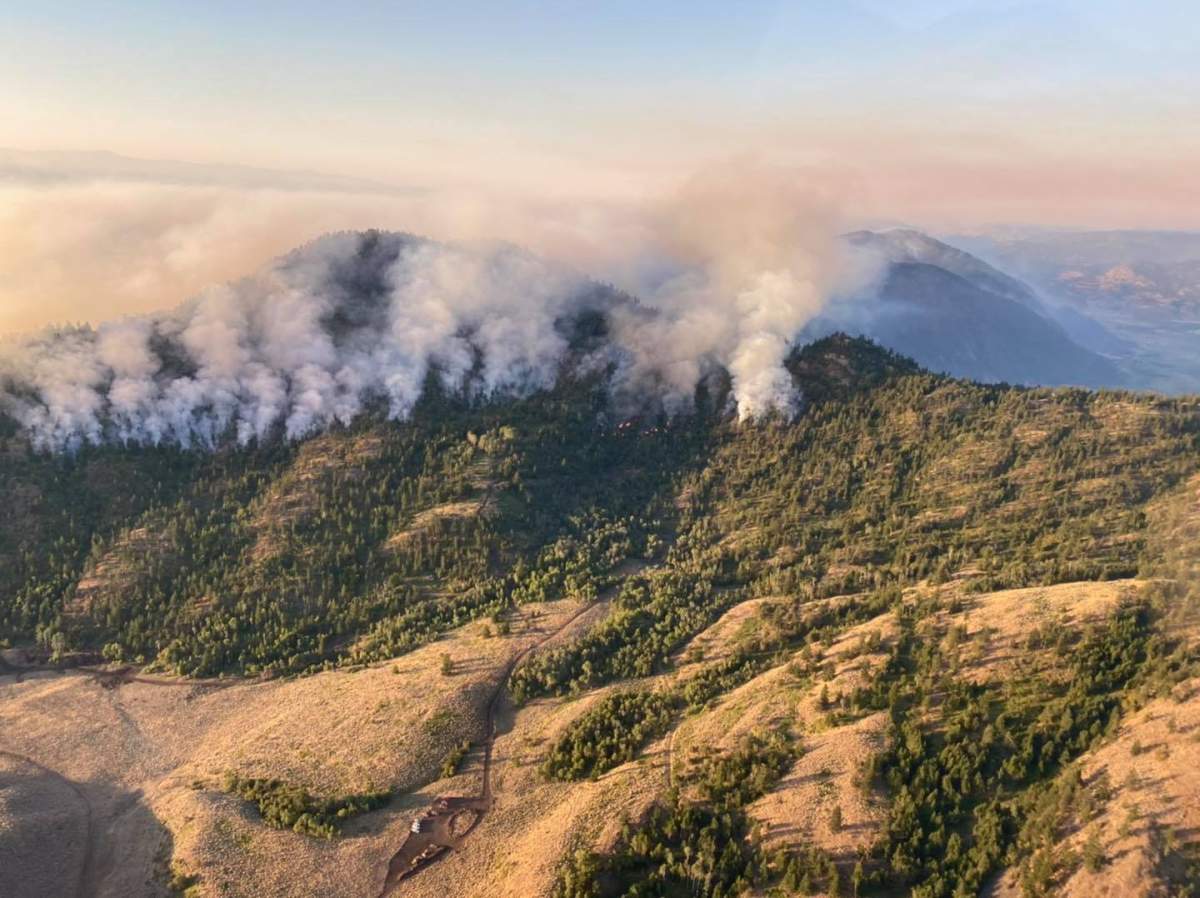A smoky skies bulletin has been extended for the South Okanagan and East Kootenay regions in B.C. due to deteriorating air quality caused by surrounding wildfires.

The Christie Mountain wildfire, southeast of Penticton, and the Palmer Lake wildfire, across the border from Osoyoos in Washington State, continue to produce smoke, the Ministry of Environment said.
Meanwhile, the East Kootenay is being impacted by smoke from the Doctor Creek Fire near Canal Flats.
“People with pre-existing health conditions (and) respiratory infections such as COVID-19, older adults, pregnant women and infants, children, and sensitive individuals are more likely to experience health effects from smoke exposure,” the air quality advisory said Monday.

Vulnerable people are encouraged to stop or reduce activity levels if breathing becomes uncomfortable, drink plenty of fluids and carry medications for asthma or other chronic illness.
Here is further advice from air quality experts:

Get breaking National news
- People respond differently to smoke. Mild irritation and discomfort are common and usually disappear when the smoke clears.
- Exposure to wildfire smoke and the virus that causes COVID-19 can both result in respiratory symptoms such as a dry cough, sore throat, or difficulty breathing. Use the BC COVID-19 Self-Assessment Tool to help determine whether you need further assessment or testing for COVID-19.
- If you are unsure whether you need medical care, call HealthLink BC at 811.
- If you are experiencing difficulty in breathing, chest pain or discomfort, or a severe cough, contact your health care provider, walk-in clinic, or emergency department. If you are having a medical emergency, call 911. Tips to reduce your smoke exposure
- Smoke levels may be lower indoors but will still be elevated, so stay aware of your symptoms even when you are indoors.
- Running a commercially available HEPA (high efficiency particulate air) filter can improve indoor air quality in the room where the device is located.
- If you have a forced air heating/cooling system in your home, it may help to change the filter and set the fan to run continuously.
- Reduce indoor air pollution sources such as smoking, burning incense, and frying foods.
- If travelling in a car with air conditioning, keep the windows up and the ventilation set to recirculate.
- If you are very sensitive to smoke, consider moving to another location with cleaner air, but be aware that conditions can change rapidly.
For additional general information about wildfire smoke and your health, click here.









Comments
Want to discuss? Please read our Commenting Policy first.